Women-led businesses are bringing change in Myanmar
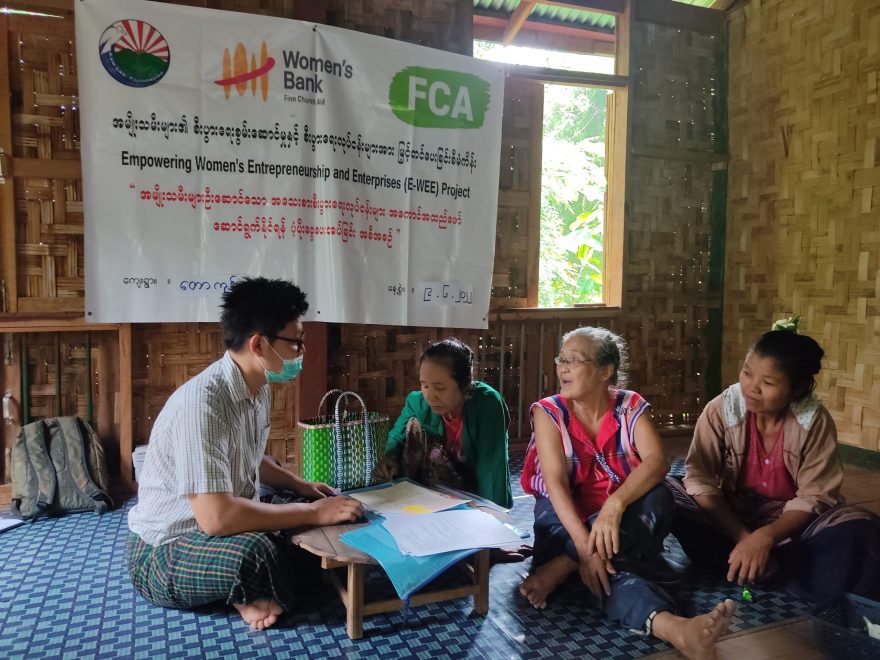
Nestled in the Kayah-Karen Mountains range are the Kayin Highlands. The area has been plagued by armed conflicts between the Myanmar Military and the Karen National Union, People’s Defence Forces, resulting in very limited development opportunities. The region has been classified as a ‘black zone’ by successive governments.
Women in the area were often confined to the traditional living style of their village, struggling to make ends meet with small daily incomes. With some working as day laborers and others focusing on their existing farm businesses, financial stability proved hard to pin down. Although they could afford daily meals, they needed money to save up.
As the economic crisis worsened, the prices of food and gasoline skyrocketed and their income and investments also fluctuated dramatically. Additionally, products they farmed could not be exported in large quantities.
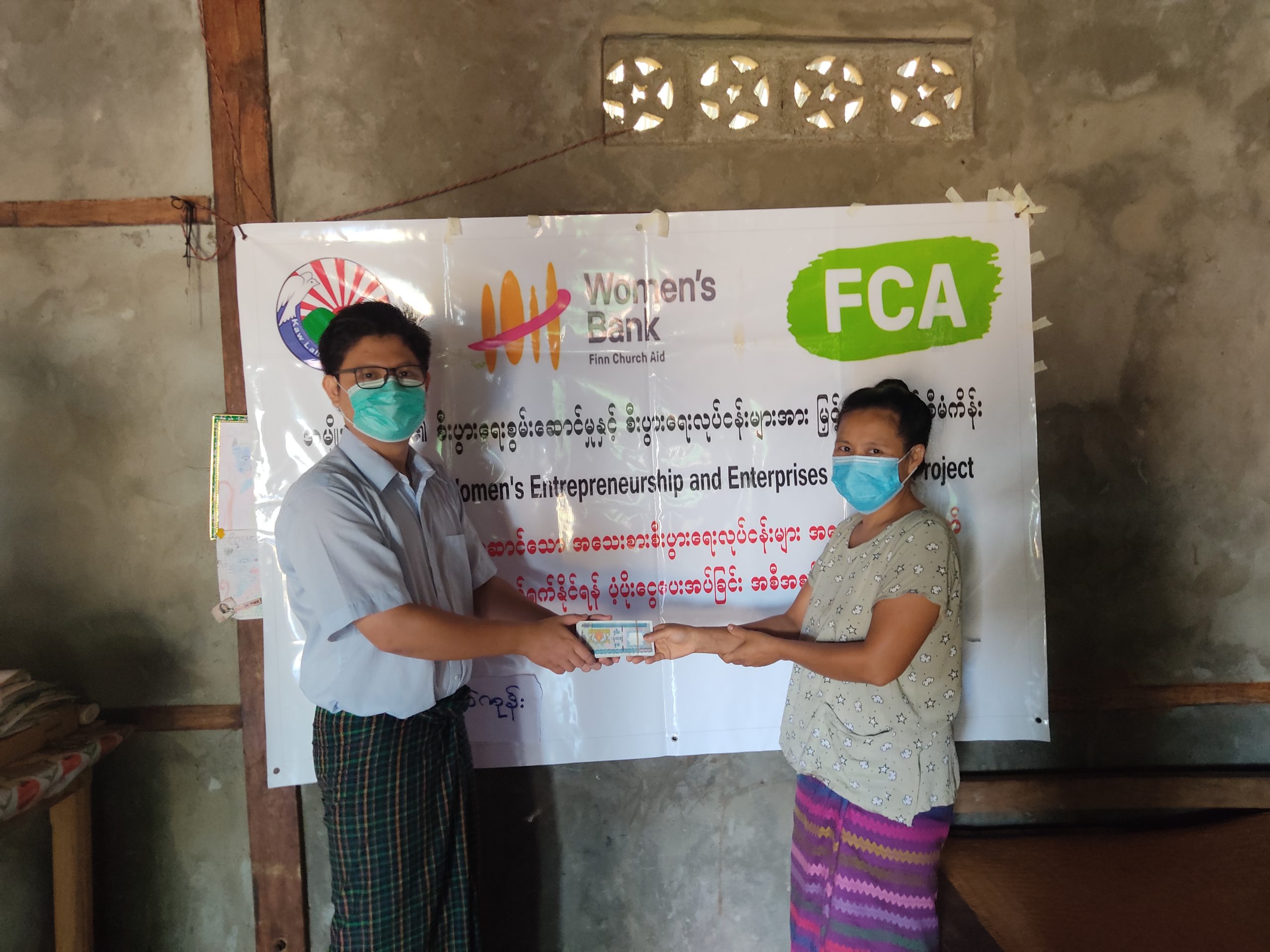
As part of the project, the FCA provided financial assistance to 80 women to help them establish and develop income-generating activities.
Women-led businesses are bringing change
A project aimed at empowering women in the region co-implemented by FCA and led by the Kaw Lah Foundation, brought about real change.
As part of the project, FCA provided financial assistance to 80 women, granting each of them 500,000 Myanmar Kyat (188 Euro) to help them establish and develop income-generating activities. Women participated either as members of the Women Empowerment Committee or as part of a Women-Led Cooperative.
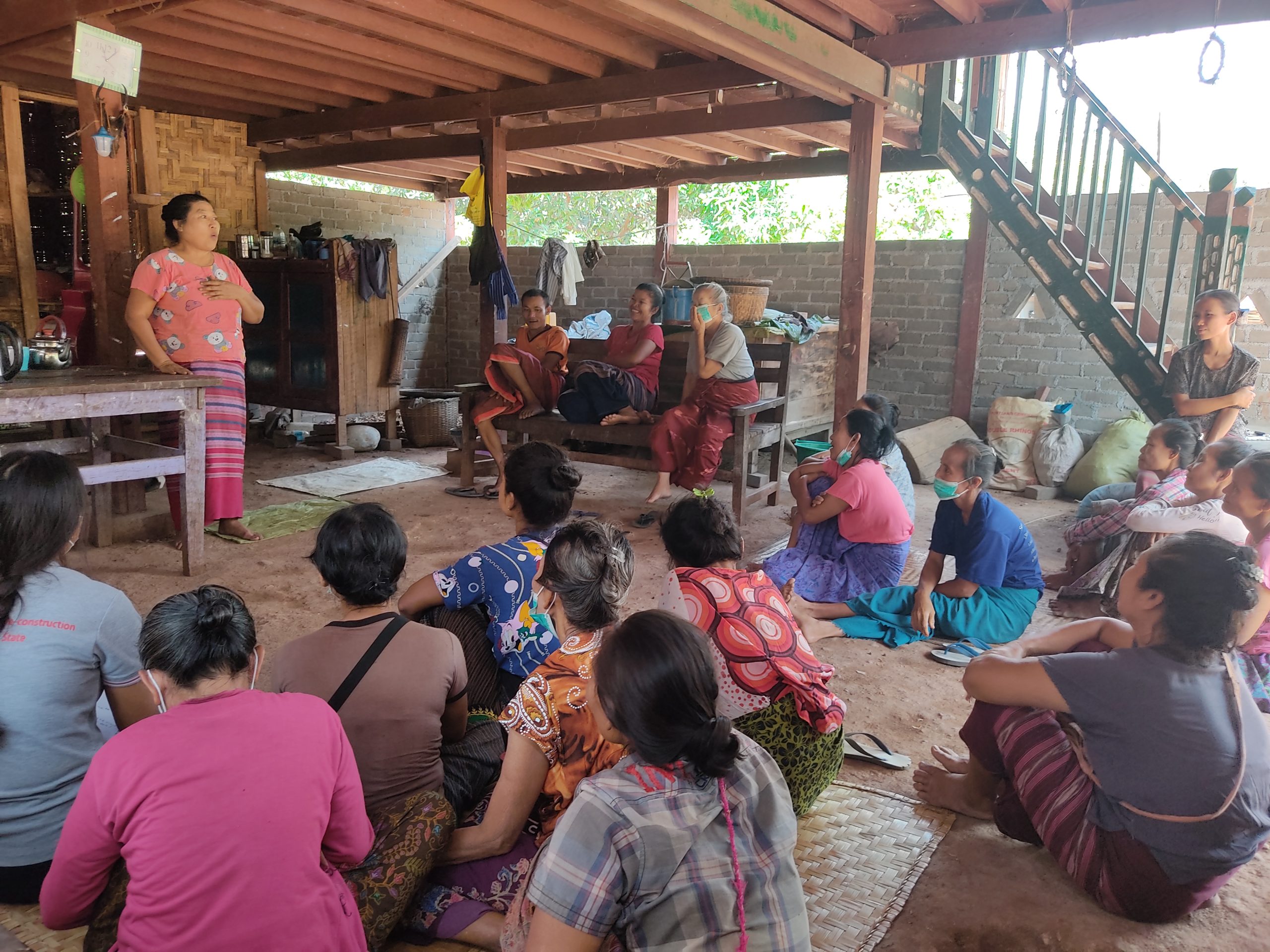
Women participate either as members of the Women Empowerment Committee or as part of the Women-Led Cooperative.
Starting and running businesses in politically sensitive and fragile areas can be challenging, so FCA provided organised comprehensive business entrepreneurship training sessions to cover various aspects of business management, including financial planning and management, branding, and marketing strategies (including online platforms).
After the business was established, we continue to provide coaching and support. The project team regularly visit the businesswomen, offering guidance and addressing concerns.
The range of businesses established by these women included grocery stores, food stalls, seasonal crop trading, bakeries, motorbike workshops, and pharmacies. Within a year, 35 out of the 80 women (43%) began earning profits from their activities. 11 of them earned profits exceeding 10 million Myanmar Kyat (376 Euro) and one woman even generated over 50 million Myanmar Kyat (1880 Euro).
From entrepreneuship to financial stability
Life dealt 59-year-old Naw Aye Thar a devastating blow with the untimely death of her husband in 1997, leaving her as the sole provider for her three sons. To her support her children, she took on various odd jobs, earning a modest income of 3,000 Myanmar kyats per day.
But life changed for the better when she assumed the role of secretary for the Women Empowerment Committee in her village. It was during this time that FCA launched its project, aiming to promote women’s entrepreneurship and business ventures in Maing Lun. Recognising her potential, she was selected as one of the women entrepreneurs and provided with a business capital of 500,000 kyats.
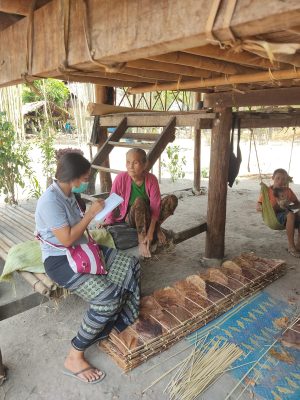
After the business was established, we continue to provide coaching and support. The project team regularly visit the businesswomen, offering guidance and addressing concerns.
With the newfound capital, she started a grocery store. Following her project proposal, she sourced products from wholesalers and began selling them retail. This venture proved to be a sustainable source of income to meet her family’s needs.
“Previously, I was very tired because I was buying goods by walking to Leik Tho Town with a bamboo-made backpack, and I couldn’t a motorcycle due to the high rental cost. My business became more convenient when I owned a motorcycle with my savings. In this time of political instability, the economic crisis worsened, food and gasoline prices skyrocketed, but mercifully I don’t have to worry about the daily meal anymore.”
Journey to business success
Naw Rutha, a 46-year-old widow from Kyaung Kone Lan Khwel village. She grew up selling groceries with her mother in a small food and local product trading business. However, despite having a wealth of experience in the industry, Naw Rutha struggled with keeping records of her business operations which made it impossible to ascertain the profit and loss of her enterprise accurately.
In June 2022, she successfully obtained a grant of 500,000 Myanmar Kyats, which she used to expand and repair her shop. The support from the project not only helped her become more familiar with business practices but also increased her profits.
“Thanks to the project, I received training on business market system development and basic financial management. The project also recognised my hard work and provided additional support funds (1,000,000 kyats) for my business.”
With this financial boost, she purchased refrigerators to store the goods and added value to local crops such as coffee, turmeric, honey, and tea. She further expanded her store and started producing and selling local products under the brand name “Rutha.”
The increased income not only benefited her family but also allowed her to financially support her parents and siblings.
“I can now support my son’s education without worrying about school fees. I can also afford donations for religious purposes and cover medical expenses for the sick. Moreover, I have been able to save money every month and even treated myself to a gold necklace.”
Displacement didn’t stop this businesswoman
40-year-old Naw Blu Paw from Bo Te Kone Village started as a casual worker in 2005, averaging around 2 weeks of work per month. In 2008, she began selling Burmese traditional snacks door-to-door in her village.
When the project was introduced in her village, Naw Blu Paw participated in business performance training courses and attended monthly meetings. Her dedication paid off when she was chosen as the small to medium enterprise (SME) woman representative of the village on June 20, 2022.
Unfortunately, she and her husband were displaced due to the conflict in the area. But the situation couldn’t discourage her and she began selling kitchen products as a mobile seller to other villagers who had also fled to the jungle. Despite the difficulties, she traveled to Taungoo – around 200 kilometres from Yangon – to purchase groceries and continued her work.
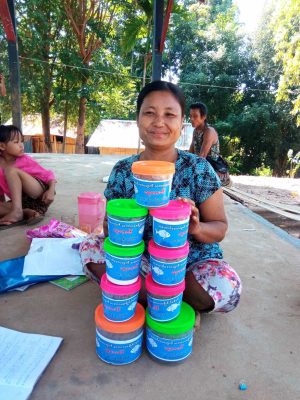
Naw Blu Paw’s dedication paid off when she was chosen as the small to medium enterprise (SME) woman representative of the village on June 20, 2022.
With this determination, she was selected as a recipient of an additional 1,000,000 kyats from the project’s top-up grant for women. This capital injection allowed her to expand her current business and she ran the fish paste and dried fish businesses. She also learned how to maintain cash accounts and create monthly income and expenditure statements, skills she previously lacked.
The continuous operation of her business greatly aided her family while occasionally providing financial support to her daughter, who lives at the Thailand border, for school. Furthermore, she was able to send three of her children to school at a church-based institution, contributing to the welfare of the community.
“Through this business, I have gained a deeper understanding of my strengths and weaknesses which improved my business operations. Additionally, I seek guidance from others experienced in fish paste production to expand my business further. Despite the challenges of travel during these difficult times, I am grateful that my business continues to thrive, bringing greater happiness to my family by relieving concerns.”
This article was first published by FCA
